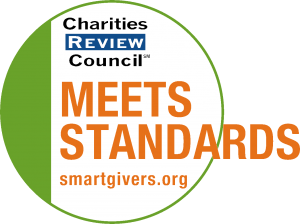Impact and Programs
Accomplishments
In Sept. 2020 BGCTC reopened eight Clubs for small-group, in-person, school day programming and supported 500+ youth with their school distance learning. Key to this wrap-around reopen plan is a structured partnership with parents/guardians and teachers/schools as BGCTC takes on a more significant role in administering a high-quality Club and education experience. The flexing of our program model during the pandemic provided technology, digital connectivity, and academic support to ensure engagement with school distance learning. Additionally, BGCTC Literacy, Math and STEAM programs supported youth in making academic gains. Daily healthy snacks and meals, healthy movement activities at the Clubs, and distribution of Family Weekend Meals advanced food security for families and supported healthy youth development. Eight Clubs and Voyageur were open for summer 2021 programming. 81 K-5 members participated in the summer Literacy Program and had pre- and post-assessments to compare growth; 41 (51%) leveled up at least one grade level. 71 K-5 members participated in the summer Math Program and had pre- and post-assessments to compare growth; 39 (55%) leveled up at least one grade level. The Clubs successfully maintained relationships with teen members during the pandemic, leading to many positive results, including increased school engagement and job readiness. FY21 results include: 329 teens participated in STEAM education and activities; 66 teens participated in Career Launch to build work skills; 156 teens obtained work experiences, including jobs and internships; and 198 teens participated in Good Character & Leadership programming to improve social skills, civic engagement, and community service.
Current Goals
FY2022 programmatic goals for the youth we serve include Grades K-12 Social-Emotional Learning (SEL): 70% of youth will show growth in self-determination and self-awareness. Grades K-8 Literacy: 80% youth will increase their score; 25% of members who are not at the College Pathway level in will level up to a higher literacy level; and 100% of members who are at grade level will maintain that status. Grades K-8 Math: 80% of youth will increase their score; 25% of members who are not at the College Pathway level will level up to a higher math level; and 100% of members who are at grade level will maintain that status. Grades 6-12 Objectives: 100% of youth receive an individual orientation to Teen Pathways (academic and career readiness); 100% of oriented teens have a MyFuture account (BGCA safe mobile platform for learning digital skills and sharing work with other youth locally and nationally); 100% of seniors have an identified plan for the future; 75% of teens complete a Youth Voice project (town hall, debate, community project); 75% of teens complete at least 15 hours of service; 70% of seniors apply for at least two BGCTC scholarships; Quarterly, 75% of teens attend BGTC’s Camp Voyageur; Quarterly, 75% of teens attend a career visit; Quarterly, 75% of teens attend a college visit; 100% of teens create a digital portfolio (artifacts of learning that demonstrate growth, skills and knowledge gained, and expressions of youth creativity over time).
Community or Constituency Served
BGCTC has a proven history of working in under-resourced Twin Cities communities to keep kids and teens engaged with out-of-school time academic, life skills, and career-focused programming. We have invested in a transformational and inclusive program model that supports essential skill building and academic achievement from kindergarten through post-secondary. With a mission that includes ‘all young people reaching their full potential’, we must address the structural inequities in education, health, and government that continue to perpetuate opportunity gaps. With a firm belief in the strength of personal responsibility, we challenge and empower youth to engage in their future by setting goals and investing in themselves and their community. BGCTC operates 10 Clubs located in high-need Twin Cities neighborhoods, as well as an environmental learning center, Voyageur, located in Mound, Minnesota. Programs are offered for K-12 youth after school and during extended daytime hours over the summer, Monday-Friday. Club membership is a reflection of the make-up of each neighborhood served. Aggregate FY2021 demographics for youth served are as follows: Ethnicity: Black – 35%; Asian – 14%; White – 8%; Hispanic/Latino – 13%; Multi-Racial – 9%; Native American – 5%; Other – 3%; and Unknown 13%. Age: 5 through 9 – 16%; 10 through 14 – 47%; 15 through 19 – 37%. Gender: Female – 38%; Male – 60%; and Unknown – 2%.
Based on self-reported information provided by families on FY21 BGCTC registration forms, 86% of BGCTC youth served qualify for free or reduced-price lunch (45% qualify for free lunch, and 41% qualify for reduced-price lunch).
Geographic Area Served
BGCTC’s Club sites serve the Near North, Hawthorne, Harrison, Jordan, Powderhorn, Central, Folwell, and Phillips communities of Minneapolis; the Summit-University, Thomas-Dale, North End, Payne-Phalen, Dayton’s Bluff, and West Side communities of Saint Paul; and the Richfield community. BGCTC’s environmental learning center, Voyageur Environmental Center, is located in Mound, Minnesota.
